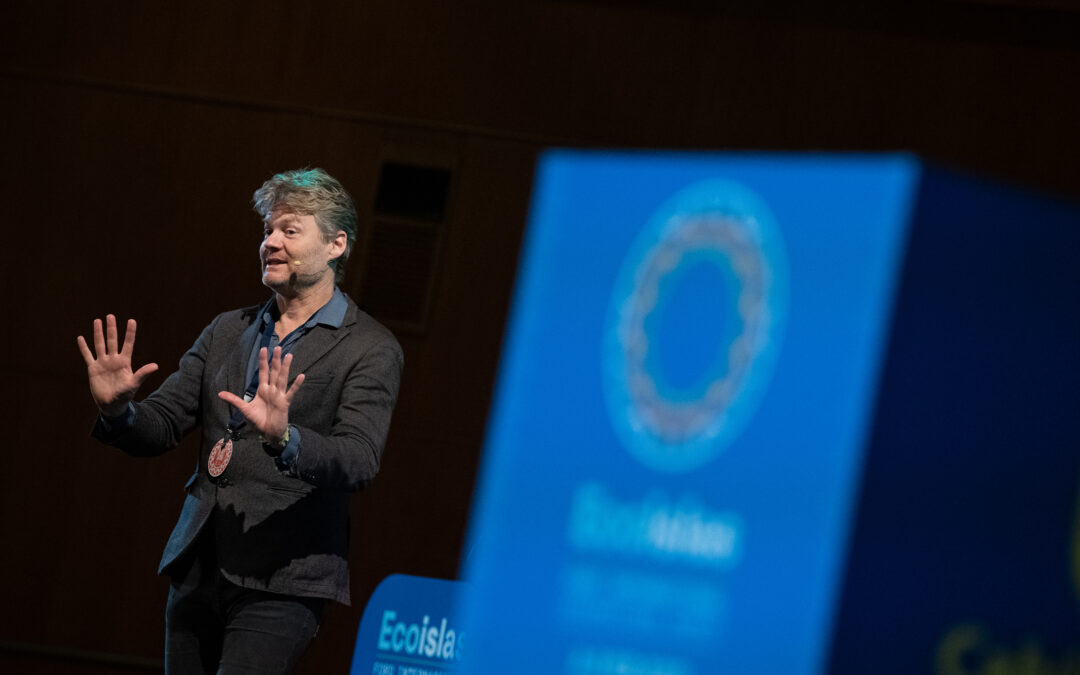- The first edition came to an end this Friday, achieving outstanding results in all its objectives
- According to data presented by Christian Felber, “in 2022 we have already exceeded six of the nine planetary ecological boundaries”
The first edition of the International Ecoislas Forum ends with outstanding results in all its objectives: more than 700 attendees, 53 conferences and 74 speakers from seven countries.
Promoted by the Cabildo de Gran Canaria (the Island Council) and organised by Infecar (The Trade Fair Institution of the Canary Islands), the International Ecoislas Forum was created to become a space for discussion, proposals and the promotion of measures to enhance the transition to a more profitable, more self-sufficient, more sustainable and more environmentally friendly socio-economic model, with a specific focus on islands.
The organisers of this first International Ecoislas Forum welcome the results that have been achieved, which are “a remarkable step forward in the essential processes of ecological transition in island territories”, addressing and delving into its four thematic blocks: climate change adaptation; energy, water and mobility; the circular economy and blue economy; and regenerative tourism.
This event has provided an extraordinary platform for knowledge exchange among dozens of top-tier specialists and world-class organisations, contributing to enriching some of the most modern and efficient visions of the future, research and innovation contexts, and actions aimed at protecting the population, its essential resources, basic infrastructures and the biodiversity of the Canary Islands.
The goal is to bring about the socio-economic transformation of our socio-economic model and move towards a more environmentally sustainable, socially just and self-centred approach, focusing on one of the most unique territories in the world. “A planet with finite resources cannot sustain a model of infinite growth”, as stated by the president of the Cabildo de Gran Canaria, Antonio Morales, during the opening ceremony.
“An Economy Without Ecology is a Blind and Foolish Science”
The proponent of the Economy for the Common Good, Christian Felber, author of several books, declared that “an economy without ecology is a blind and foolish science”, reinforcing his advocacy for a management model that uses a “dashboard” for a sustainable, democratic, balanced, egalitarian and socially just future.
According to the data presented by Christian Felber, “in 2022 we have exceeded six of the nine planetary ecological boundaries” which is “the most significant reference of the last decade”. The planet has 210 million more people in a situation of severe food insecurity, which unveils “a crisis landscape” that “requires an urgent paradigm shift” that also fosters “a shift in our cultural understanding”.
As an example, he mentioned that 82% of German banks increased their profits even more in the last two years, and this extra income “reached the hands of 1% of the population”. Christian Felber proposes changing economics textbooks with a new economic model that lies between capitalism and socialism and understands money from the ‘Oikonomia’ concept, as a means to improve life for everyone.
Based on this theory, which has been around for 12 years, real prototypes have already been developed for the planet, and even though they are “still few, good results have been obtained”, he noted. This common good economy follows a competitiveness scheme that “no longer measures success through economic profit or financial return” and instead focuses on “general well-being” with parameters such as “health, satisfaction, social cohesion, fair distribution, fundamental rights, security, peace and ecological stability”.
We need to “change the rules of the game”, he said. Currently, there are already 44 municipalities, 1,014 companies and eight banks that operate according to the common good theory. “These are small steps,” but there are already chairs, university degrees and a methodological idea that can be applied. Christian Felber suggests “starting from town and island councils or eco-islands, like Gran Canaria”.
The first International Ecoislas Forum opened its doors this Thursday with a varied programme and closed with the ‘Greening The Islands’ awards ceremony, as a parallel event.
Cajasiete is the official partner of this 1st International Ecoislas Forum, which is sponsored by Ewaste, Fundación Canarias Recicla, Astican and Inetel. This initiative has had the participation of Greening The Islands, European Projects and Mac Clima; and was organised with the collaboration of the Gran Canaria Island Energy Council, the Spegc (Economic promotion Agency of Gran Canaria), the University of Las Palmas de Gran Canaria, the Maritime Cluster of the Canary Islands, the Island Water Council, the Oceanic Platform of the Canary Islands (PLOCAN), the Technological Institute of the Canary Islands (ITC), Gesplan and the Chamber of Commerce of Gran Canaria.

